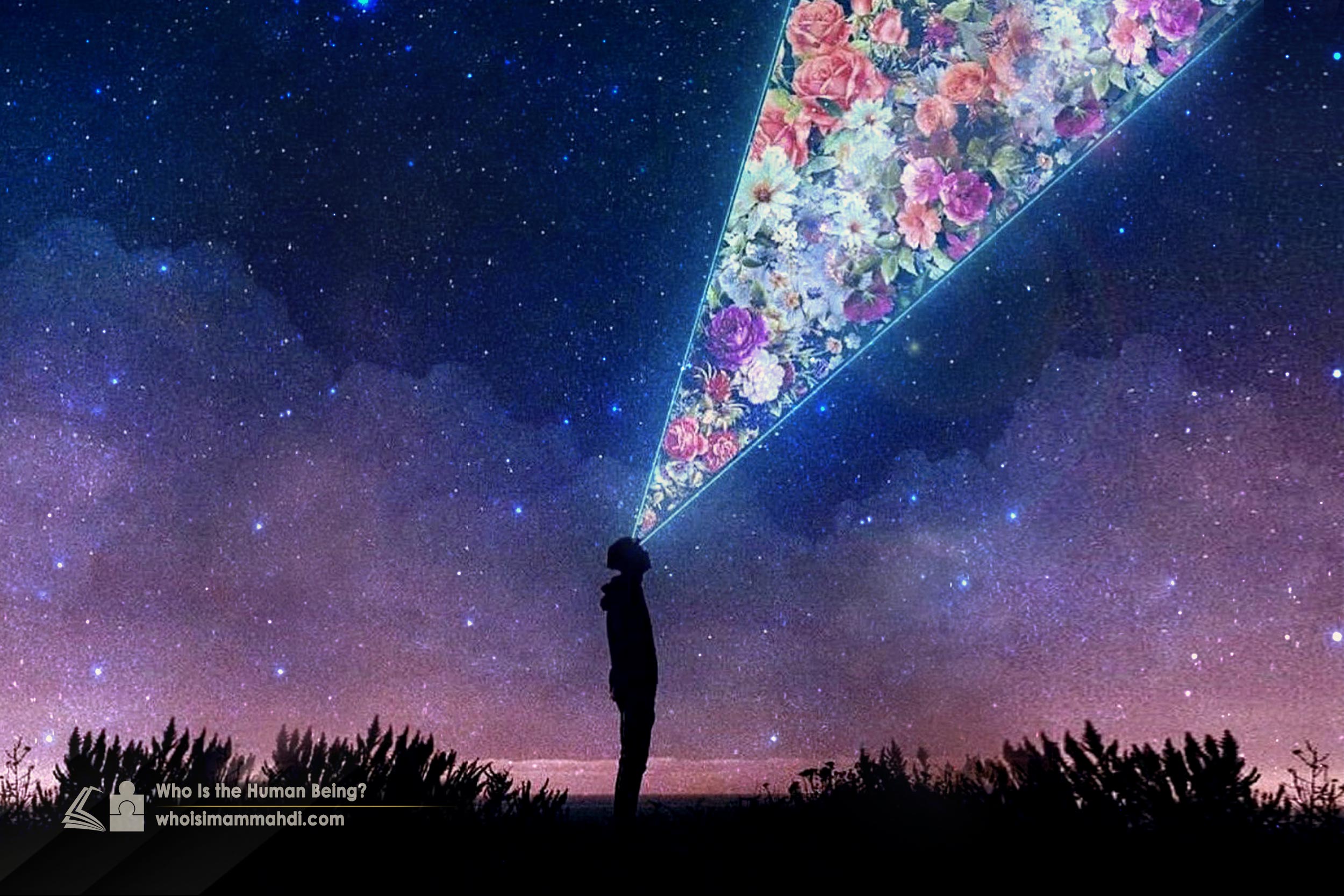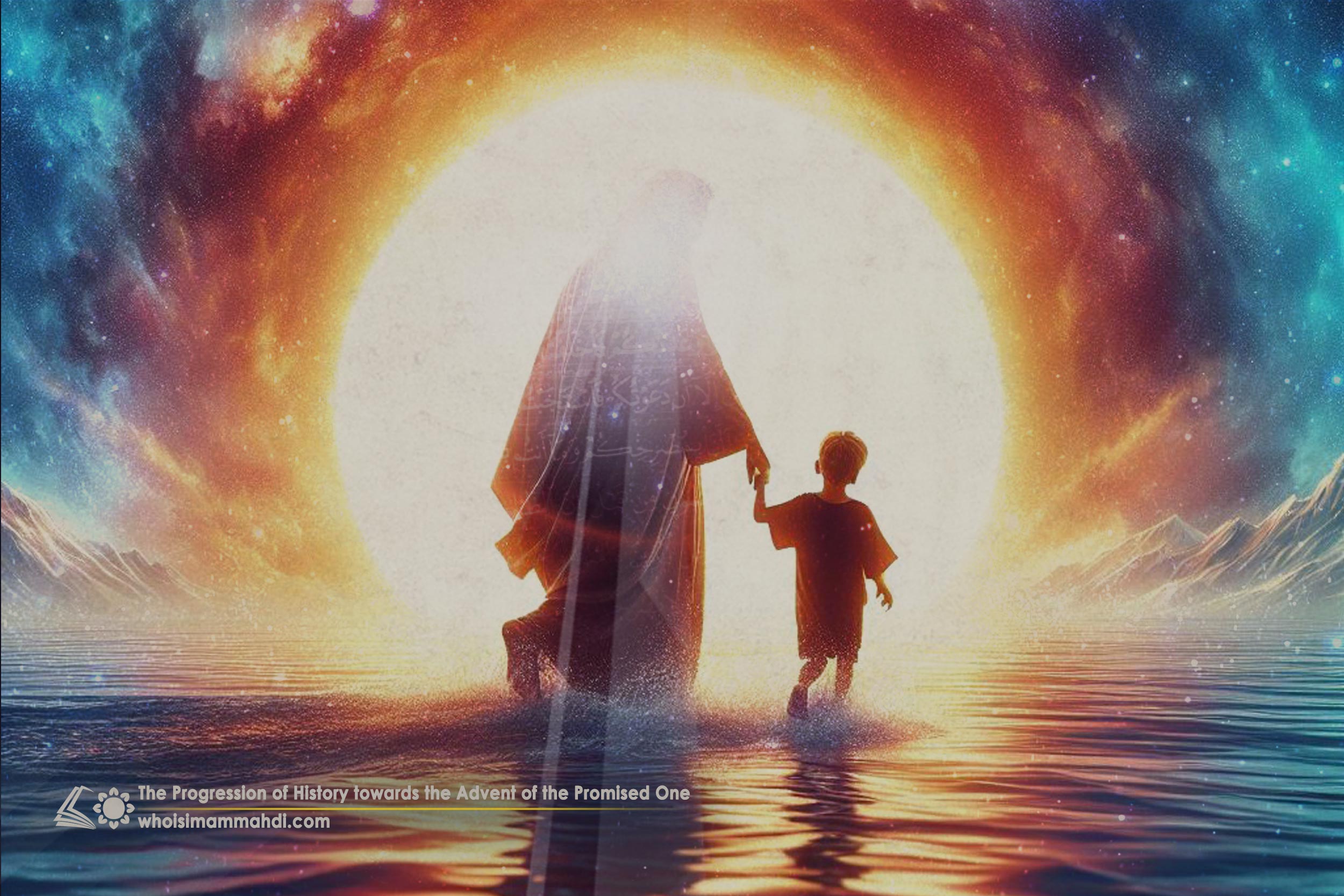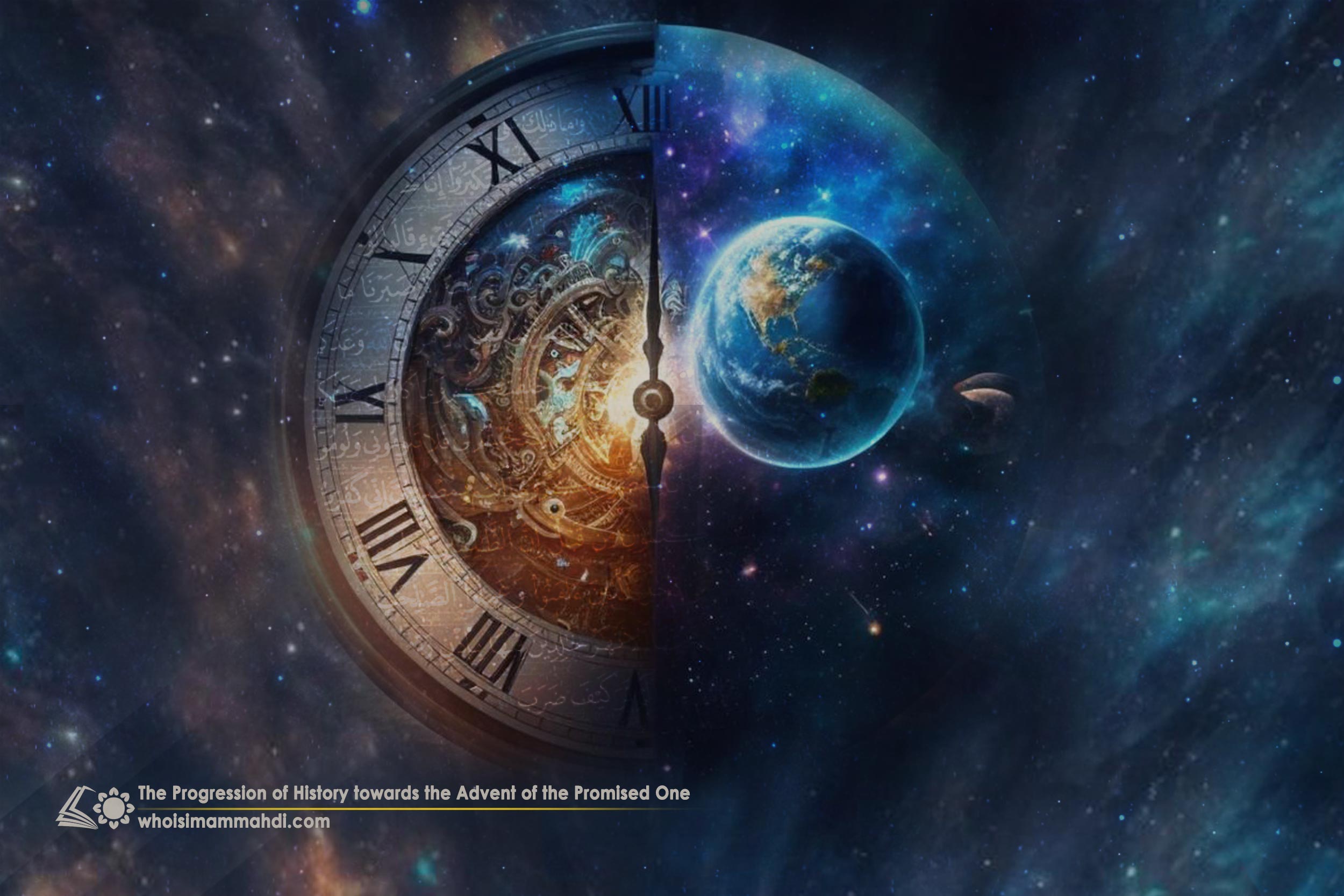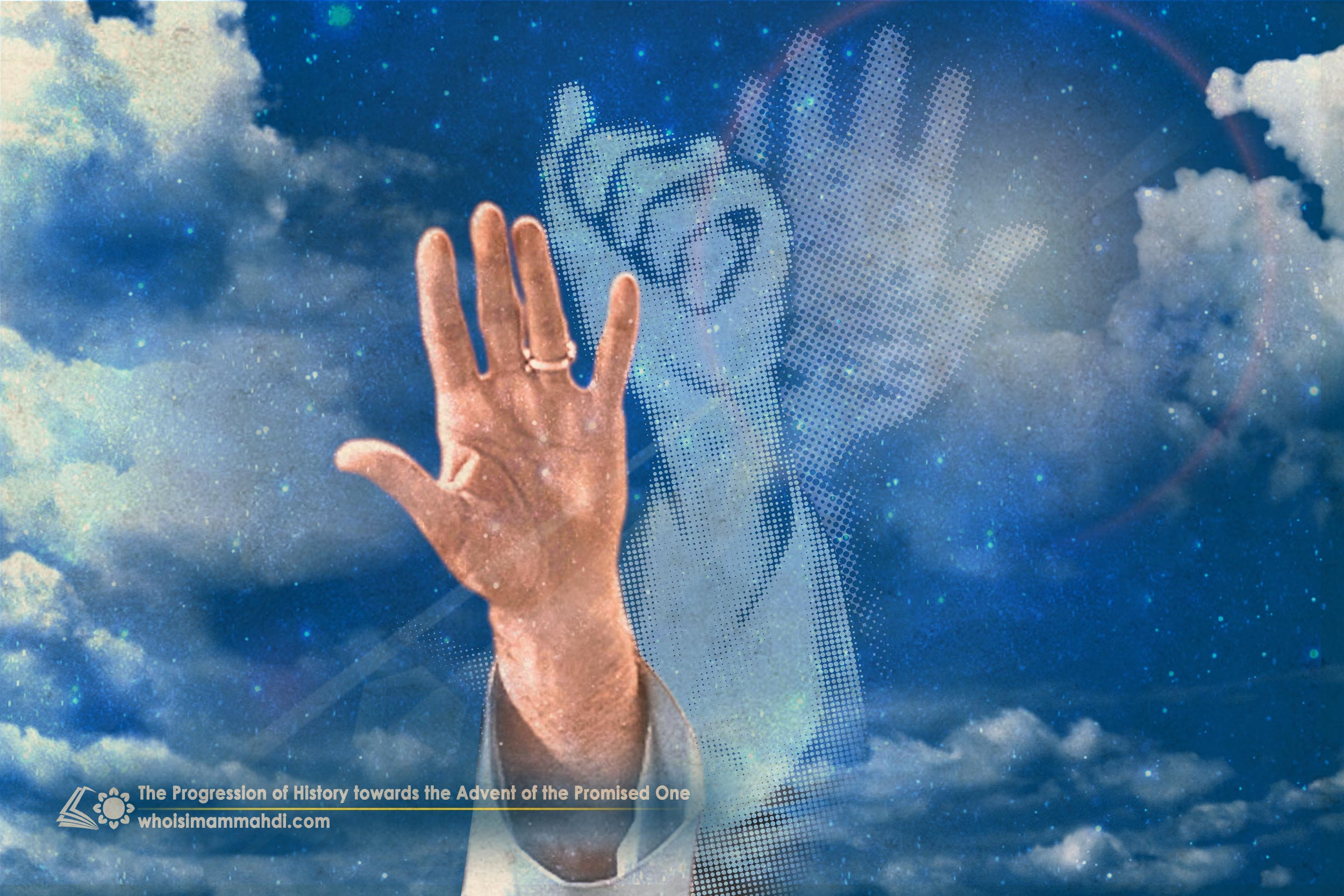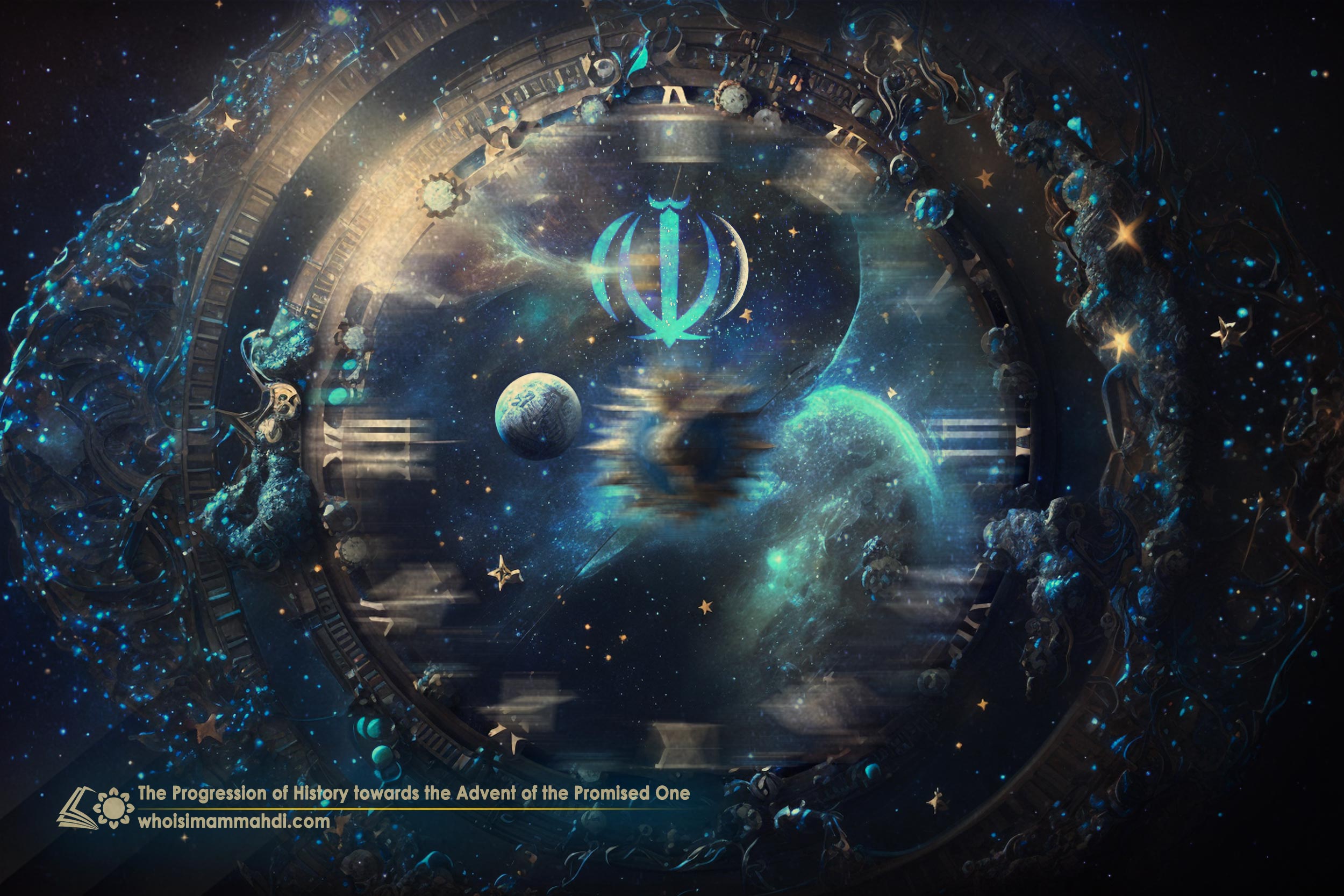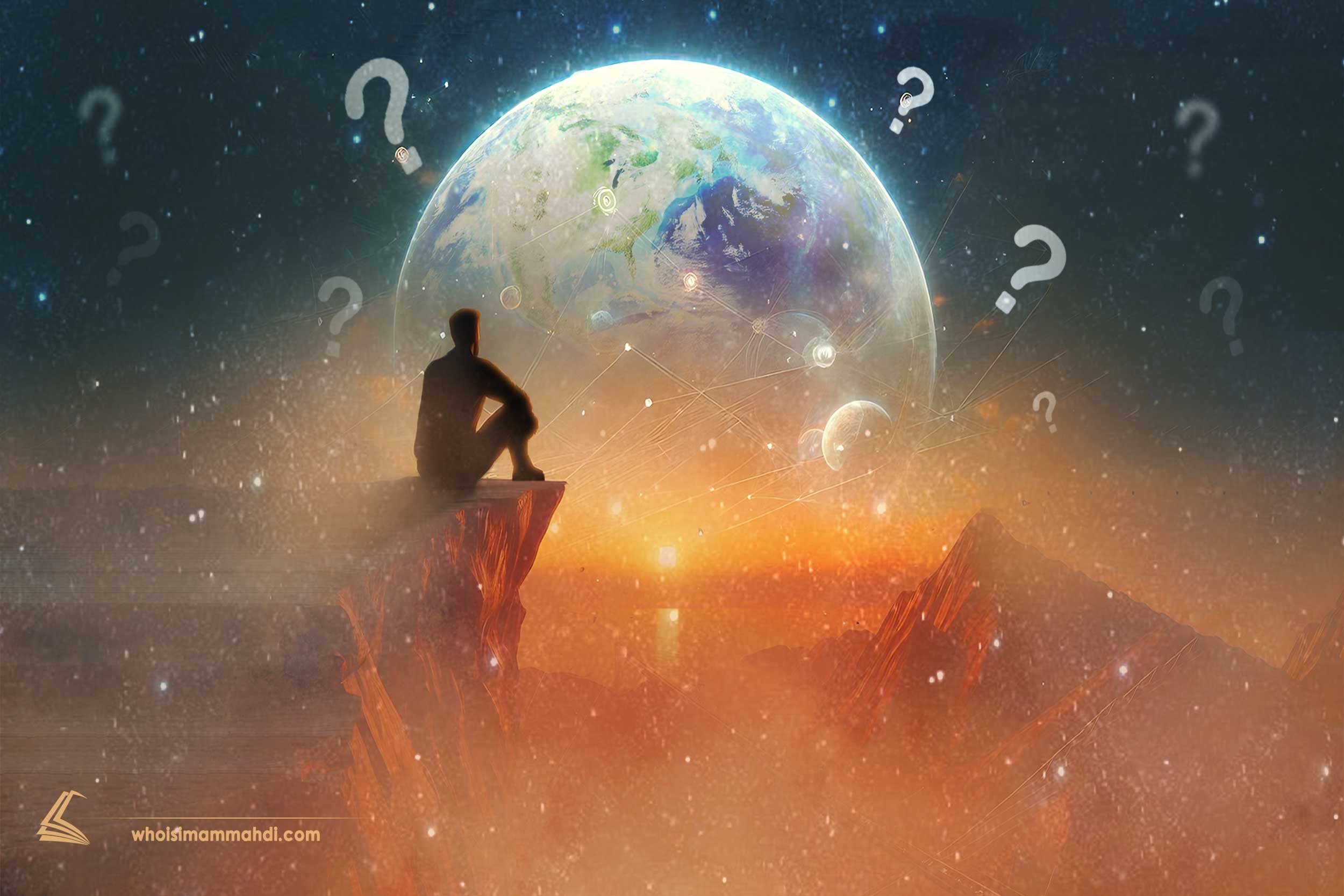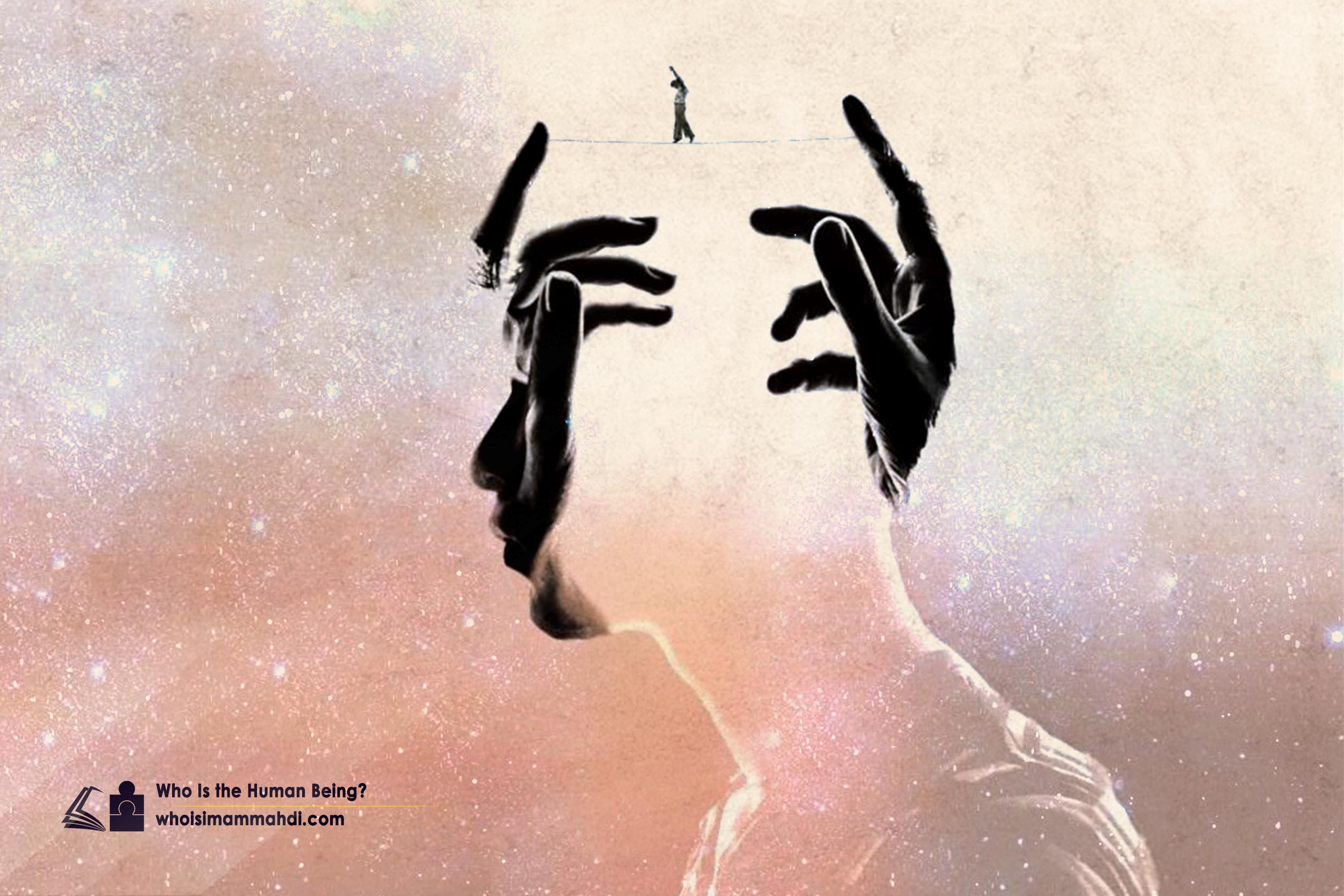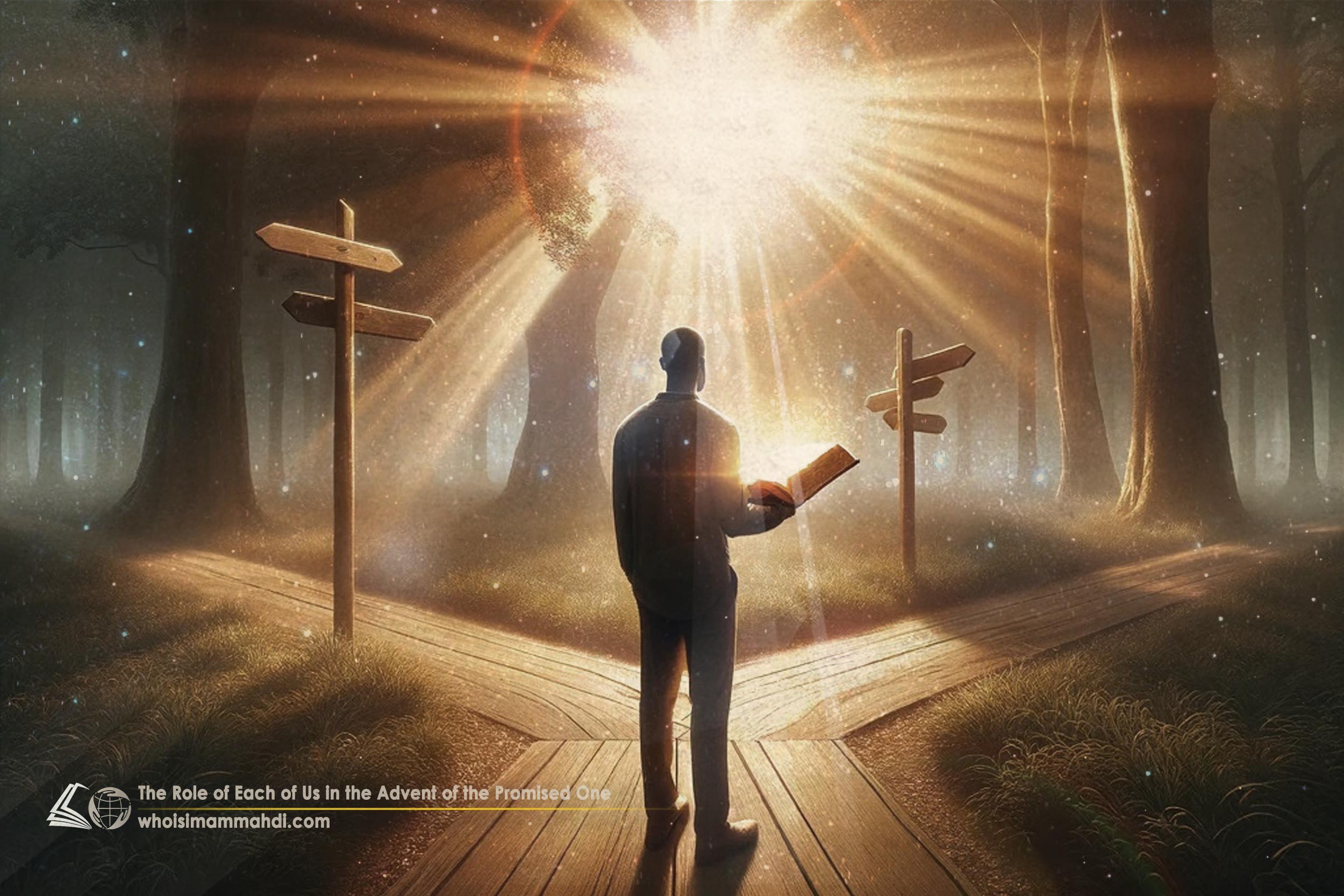Embracing “There is no deity but Allah” Is a Sign of Human Maturity and Balance
Have you ever thought about what “There is no deity but Allah” [1] really means? You might think that “There is no deity but Allah” is just a religious phrase for saying which we are given great rewards and blessings. Or perhaps you see it as a declaration of one of the most important principles of our beliefs, which is the concept of monotheism. While these statements are true, “There is no deity but Allah” has a meaning far beyond being just a religious and Islamic statement; it is a human statement that points to a truth about the maturity of our human dimension.
We stated that our existence, as the most comprehensive entity, is composed of various dimensions, each of which, depending on its nature, has specific inherent qualities and an inclination towards something of its own kind. However, merely having these dimensions is not enough because if we do not reach maturity in a dimension, we do not show any interest in it, or in other words, the desire for it does not arise within us. For instance, during childhood, when we have not yet reached sexual maturity, we do not show an interest in marriage. Similarly, if we do not reach intellective maturity, we will not have any inclination towards learning, studying, or engaging in scientific activities. However, as soon as we reach maturity, signs of this desire and tendency are seen in us.
Although our existence is composed of various dimensions, what distinguishes us from other beings is our human dimension. Since we are infinite in our human dimension, we are only compatible with the infinite existence of Allah, who is the Absolute Perfect Being; this means that in our human dimension, we only love Allah, and it is only through connection with Him and getting close to him that we can find inner peace. Therefore, reaching human maturity means that we love Allah and sings of this maturity are also evident in us. This means that we long for Him and naturally seek His satisfaction. As a result, we wear certain clothes out of respect for our relationship with Allah or enjoy performing certain acts such as prayers, fasting, giving Khums, doing jihad, etc., as He desires us to do because a lover does not pay attention to anyone other than his beloved. However, if we do not reach this maturity, we do not feel a need for Allah and consider these activities as difficult and obligatory duties.
Our truth is “There is no deity but Allah,” meaning we have no beloved other than Allah. If we fail to reach this truth, it means we have not reached human maturity and the human inward state, remaining at the level of inanimate objects, plants, animals, or at best, angels. The entire story of our creation and existence is that of mutual love between us and our Beloved, Allah, who has created all beings for us and has created us for Himself. In this article, we aim to examine the outcome of loving God and see if we are not in love with God, then what we are in love with. What does it mean not to be in love with God and what consequences does it lead to? What defines a balanced and normal person and what characteristics does he possess? And finally, what are the characteristics of a balanced civilization and how is it formed?
The Love That Makes Us Similar to God
Love can be both interesting and dangerous because when we fall in love with something, unconsciously we desire perfections of the same kind for ourselves. For example, in inanimate love, we seek money, wealth, or a house; in vegetative love, what matters is food, beauty, fitness, becoming a sports champion, and so on. In the realm of animal love, attraction to the opposite sex, the desire to have children, striving for senior-level positions, and in intellective love, gaining knowledge and expertise are important to us. In fact, by achieving each of these perfections, we make it our own, that is, that perfection becomes a part of our essence, and we become united with it. Similarly, when in the supra-rational dimension, we fall in love with Allah and embrace “There is no deity but Allah,” we want to be united with Allah and make the perfections of the Infinite Being a part of our existence; in short, we want to be similar to Allah.
Our hearts are the abode of our love, determining our value. In the Quran, God describes the state of individuals who have taken a path other than resembling Allah and embracing “There is no deity but Allah.” These individuals, whose hearts are engaged with other beloveds, are categorized into five groups:
- The first group are those with an inanimate status and hearts as hard as stones.
- The second group are individuals with a lower status than inanimate objects and hearts harder than stones; they show no flexibility at all and remain unaffected even upon hearing God’s name; they undergo no transformation.
- The third group includes individuals who, in terms of nobility, activities, and desires, are equivalent to animals; their perfections are not higher than those of animals.
- The fourth group consists of individuals who are less than animals, lacking qualities such as honor, modesty, family commitment, trustworthiness, and serving fellow and non-fellow beings, which are among the qualities and perfections of animals.
- The fifth group consists of human devils, the worst kind of humans. They not only give in to Satan’s control, but they also become tools for carrying his plans and mislead others.
Satan is the cause of our negligence, and any being that makes us forget our human dimension, takes away our happiness and peace, and prevents us from being kind is called the devil in the Quran. In fact, a devil does not let us understand our ‘true self’ and the fact that Allah is our true Beloved. On the whole, it prevents our connection with the world of the Unseen [2].
Who Is an Abnormal Person?
The Quran divides us into two categories: normal and abnormal or fasiq. We are called normal when we reach maturity in our human dimension, i.e., when we love God. In fact, the five groups of people, mentioned earlier, who are involved with other beloveds are not considered normal according to the Quran because they do not love infinite human perfections, and despite having a human form and outward appearance, they pursue limited perfections.
We are human beings, and normally, we should strive to reach maturity in our human dimension, that is, the dimension which loves infinity and sets us apart from other beings. However, just as individuals can experience a change of temperament due to having a cold or being pregnant, we too can find ourselves in situations where we do not behave normally. We come to love limited and transient perfections instead of unlimited perfections; this means, based on the type of nutrition or our actions and behaviors, we may disrupt the mathematical structure of our existence and prevent its normal function. This makes us fasiqs; fisq means deviation from normal state, just like someone who, despite reaching puberty, dislikes the opposite sex or a person who finds the scent of flowers unpleasant, or a lion that feeds on plants instead of meat.
Of course, it is not just a matter of a change in name. The point is that our going out of normal state has extremely severe consequences; it leads to a total loss where we lose the human and eternal assets of our existence. According to the Quran, only those who believe, do righteous deeds, advocate for the truth, and urge others to the truth can avoid this loss. In other words, they are not fasiqs, and since they are true believers, they understand their human status and realize their need for a deity and beloved. To embrace “There is no deity but Allah” and their Beloved, i.e., Allah, they do deeds that get them close to their Beloved.
Characteristics of a Balanced Human Being
Perhaps you have also asked yourself: How can we know when we are in a normal state? How to make sure we are not fasiqs? And what are the characteristics of a balanced human being? The truth is that God has put a mirror in the Quran; by aligning our decisions, behaviors, thoughts, and relationships with this mirror, we easily come to know our inward state and whether we are a believer or fasiq, and we can assess ourselves against the criteria which make a person normal and balanced. This mirror is verse twenty-four of Surah At-Tawbah; here God tells us that the truth of each person is his heart and evaluates a person’s value based on the beloveds that occupy his heart. It introduces eight different beloveds to us:
- Parents
- Children
- Brothers and sisters
- Spouses
- Tribe, meaning the culture and social customs we cherish
- Possessions
- Occupation, trade, and social status
- The house we love
The Quran regards us normal and guidable believers only when the three human beloveds—God, the Ahl al-Bayt (Household of Prophet Muhammad) and Jihad (striving in God’s way)—are more beloved to us and surpass those eight beloveds. The human is an infinity-seeking being and is constantly moving towards infinity. The infinity-seeking heart cannot desire limited and temporary worldly beloveds unless its existential structure has deviated from its normal state. Just as we normally do not prefer a high school diploma over a bachelor’s degree, or we do not consider having less wealth better than having more wealth, it is impossible to place the Infinite Beloved and the Ahl al-Bayt, who are the perfect manifestations of this Beloved, as secondary to our worldly beloveds and still claim to be in a normal state.
Of course, there is nothing wrong with loving these eight beloveds, but it is acceptable only if they are loved for their real worth, but no more than that and if they are placed in a lower position than the three beloveds of our human dimension. Otherwise, we would come back to our normal state when we re-engineer our beloveds and desires, so that our heart can find its true status and embrace “there is no deity but Allah.” For example, imagine someone who aims to travel south but he has taken the route to the north; he can reach the destination only by turning back from the wrong path, correcting his mistake, and taking the right path.
Indeed, God always tests us in order to see whether we choose inanimate, vegetative, animal, and intellective beloveds or our human Beloved. That is, He puts us in certain situations to see whether we prefer the world or Allah, the Ahl al-Bayt, and jihad. However, there are individuals who are so spiritually powerful that they do not see inanimate, vegetative, animal, and intellective beloveds as obstacles or beloveds. Instead, they use them to reach the highest levels of their supra-rational dimension.
The Importance of Jihad, Love, and Hate
Perhaps the question arises as to why jihad is considered one of the essential conditions and criteria for human balance. In reality, the answer to this question, like many others, becomes clear by looking at our soul. Can we truly love someone while getting along well with their enemies? Love [3] and hate [4] are like two sides of the same coin; we cannot claim “there is no deity but Allah” and say we love Allah, while at the same time, we make friendly relations with His enemies and embrace their lifestyle and culture.
Since we have wrongly prioritized the principles and practical rulings of religion, we have been unable to properly understand the importance of jihad or love and hate. When we find ourselves infatuated with living in a non-Islamic society and mingling with naturalists, it means we are no longer compatible with our fitrah, and we have ended up giving priority to other beloveds over Allah, the Ahl al-Bayt, and jihad. Naturally, when someone fails to grasp the true meaning of “There is no deity but Allah” and does not put Allah as the highest among all beloveds, he is not willing to sacrifice his world for God, and no trace of various forms of jihad can be seen in his life. As we innately seek infinity, we are only normal when we love the Infinite Being and His manifestations—Allah and the Ahl al-Bayt—and choose eternal beloveds for ourselves. In fact, as soon as we seek limited perfections, we are no longer normal individuals.
The Formation of a Balanced and New Islamic Civilization
Certainly, when we become familiar with the true characteristics of a balanced human being, it will be easier for us to understand the requirements for the formation of a balanced and new civilization. In the “new civilization,” arrogant powers and modernists play no role; rather, in this civilization, people are not fasiqs; they have a human inward state and live a normal life. Although science and technology will be at their peak in this civilization, it is the human being who will be the center of everything. In such a society, people will prioritize love for Allah, perfect manifestations of Allah, and jihad over all other beloveds and desires, and there will be no oppression, discrimination, corruption, malevolence, or transgression.
The new civilization represents an Islamic society in the truest sense of the word, and it is different from a Muslim society where there are mosques, the call to prayer, dhabihah, 5], and the observance of certain religious practices and rituals, but the main criteria for bliss—kindness, inner peace, and happiness- have not been fulfilled.
In this article, we discussed the concept of “there is no deity but Allah” as a human statement and the loving relationship between the human and his true Beloved, Allah. We stated when our supra-rational dimension embraces “there is no deity but Allah,” we find unity with Allah and become similar to Him. Love for Allah and embracing “there is no deity but Allah,” like any other love, necessitates the maturity of our supra-rational faculty; if our heart engages with the beloveds of other dimensions, signs of this love will not manifest themselves in us. As infinity-seeking beings, we are considered normal when we try to achieve unlimited and eternal perfections. When we prioritize Allah, the Ahl al-Bayt, and jihad over other beloveds, we will be in a balanced state. Like any other love, love for Allah involves both love and hate. It means when we love something, we inevitably detest anything that goes against or opposes it. We cannot claim to love Allah and say “there is no deity but Allah,” while we make compromises with Allah’s enemies. The new civilization and a balanced society is an Islamic society made up of balanced and normal individuals, and in this society, there is no room for injustice, corruption, and discrimination.
References
[1]. lā ʾilāha ʾillā -llāh’
[2]. The world of the unseen (Ghayb) is the counterpart of the manifest realm, consisting of whatever lies beyond the scope of the senses and cannot be externally perceived. We have, for example, no direct knowledge of the circumstances of resurrection or the nature of reward and punishment, nor do we know anything of the composition of the angels or the attributes and essence of God, not because all of these are minute or subtle entities, but because they transcend our limited horizons of thought and lie outside time and space.
[3]. Tawalla
[4]. Tabarra
[5]. Islamic prescribed method of slaughter for halal animals

